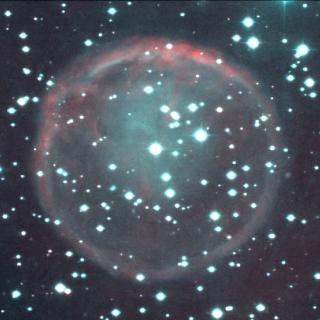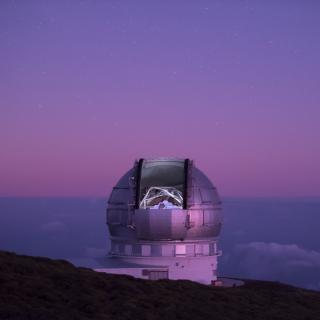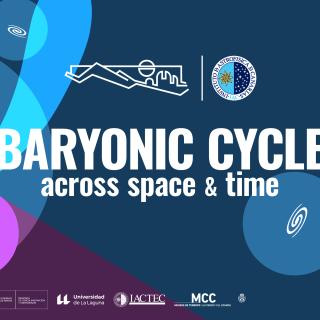It may interest you
-
 An international team of researchers, including staff from the Instituto de Astrofísica de Canarias (IAC), has discovered a planetary nebula that destroyed its own planetary system, conserving the remaining fragments in the form of dust orbiting its central star. To date, more than 5000 exoplanets have been discovered orbiting stars of all kinds and almost every stage of stellar evolution. However, while exoplanets have been discovered around white dwarfs – the final stage in the evolution of low- and intermediate-mass stars like the Sun, no exoplanets have been detected in the previousAdvertised on
An international team of researchers, including staff from the Instituto de Astrofísica de Canarias (IAC), has discovered a planetary nebula that destroyed its own planetary system, conserving the remaining fragments in the form of dust orbiting its central star. To date, more than 5000 exoplanets have been discovered orbiting stars of all kinds and almost every stage of stellar evolution. However, while exoplanets have been discovered around white dwarfs – the final stage in the evolution of low- and intermediate-mass stars like the Sun, no exoplanets have been detected in the previousAdvertised on -
 The Solar System research group at the Instituto de Astrofísica de Canarias (IAC) is participating in the international programme to keep a closet track of asteroid 2024 YR4. The aim is to determine its orbit with the highest possible precision before it stops being observable by ground based and satellite telescopes in April, and so improving our value of the probability that it will impact the Earth in 2032. In this context several telescopes of the Canary Observatories of the IAC are playing an outstanding role in this observing campaign: The Gran Telescopio Canarias (GTC) at the Roque deAdvertised on
The Solar System research group at the Instituto de Astrofísica de Canarias (IAC) is participating in the international programme to keep a closet track of asteroid 2024 YR4. The aim is to determine its orbit with the highest possible precision before it stops being observable by ground based and satellite telescopes in April, and so improving our value of the probability that it will impact the Earth in 2032. In this context several telescopes of the Canary Observatories of the IAC are playing an outstanding role in this observing campaign: The Gran Telescopio Canarias (GTC) at the Roque deAdvertised on -
 The Instituto de Astrofísica de Canarias (IAC) and the University of La Laguna (ULL) are organizing the XXXV edition of the Canary Islands Winter School of Astrophysic s which will take place between the 8 th and the 17 th of October in La Laguna,Tenerife. For this edition there will be 60 participants, including master’s and doctor’s degree students and postdocs, from thirteen different countries who will come to Tenerife to receive a complete and exhaustive view of the evolution of the galaxies. The Canary Islands Winter School of Astrophysic s is a key event in the calendar of theAdvertised on
The Instituto de Astrofísica de Canarias (IAC) and the University of La Laguna (ULL) are organizing the XXXV edition of the Canary Islands Winter School of Astrophysic s which will take place between the 8 th and the 17 th of October in La Laguna,Tenerife. For this edition there will be 60 participants, including master’s and doctor’s degree students and postdocs, from thirteen different countries who will come to Tenerife to receive a complete and exhaustive view of the evolution of the galaxies. The Canary Islands Winter School of Astrophysic s is a key event in the calendar of theAdvertised on